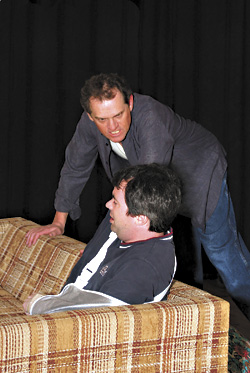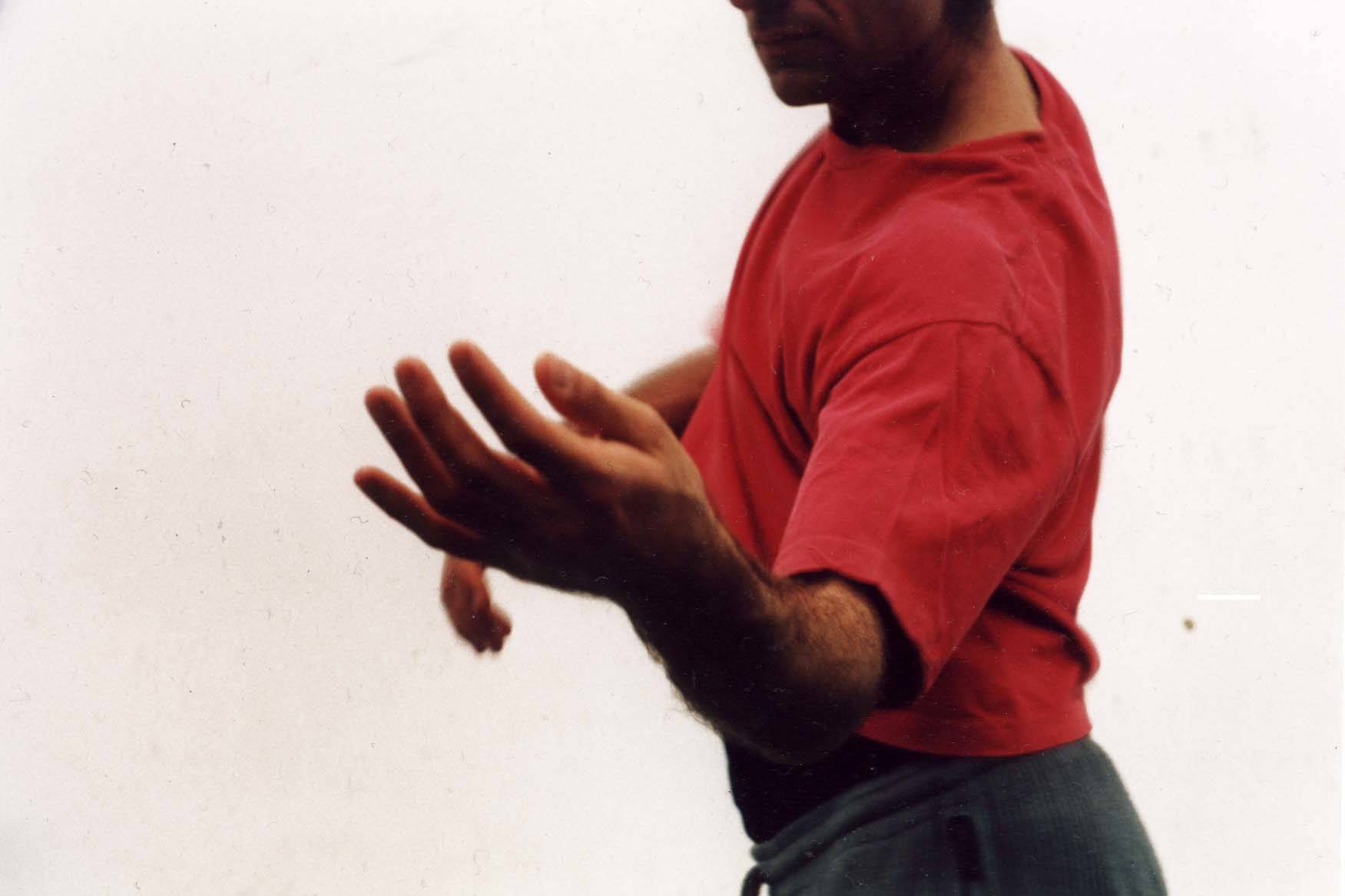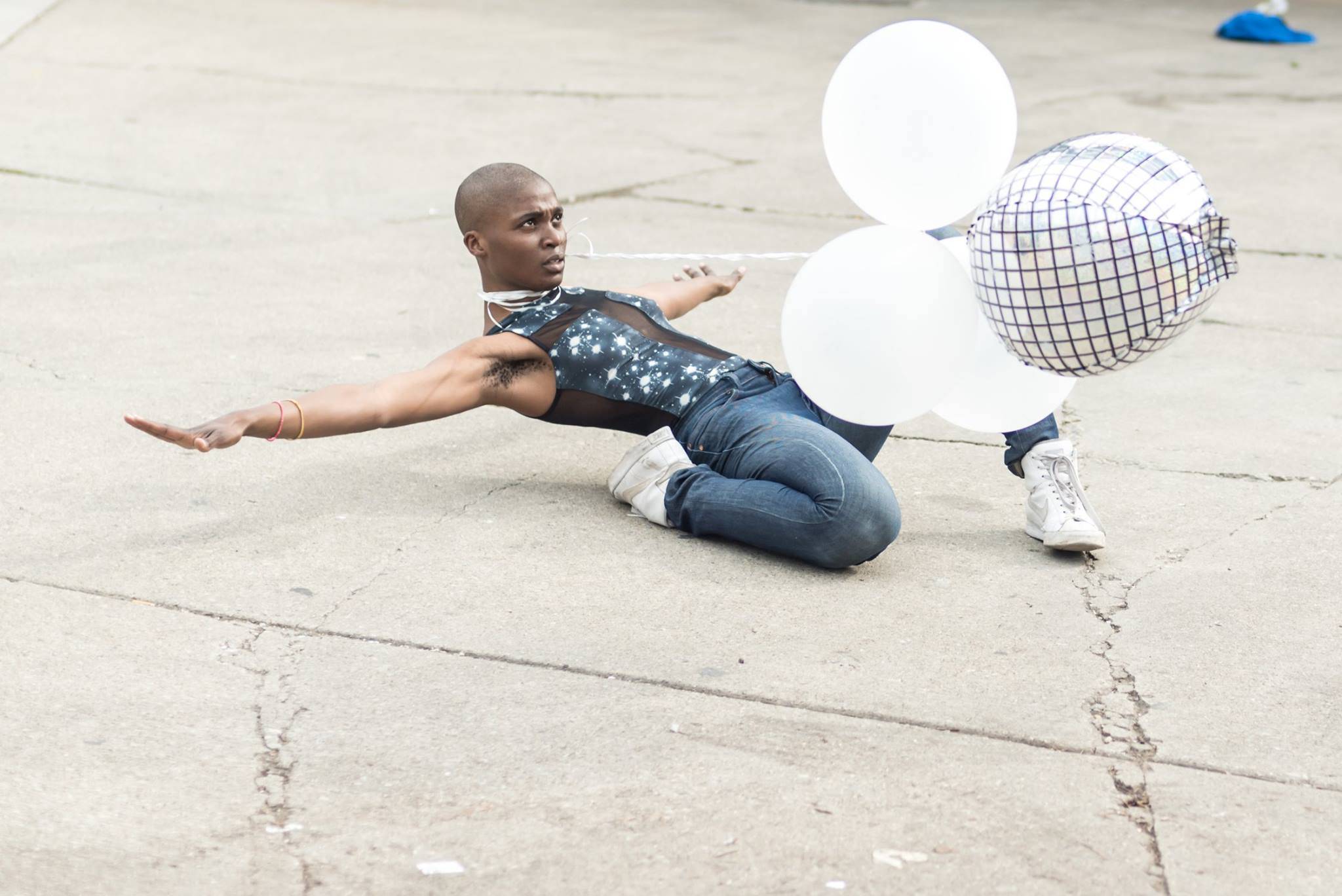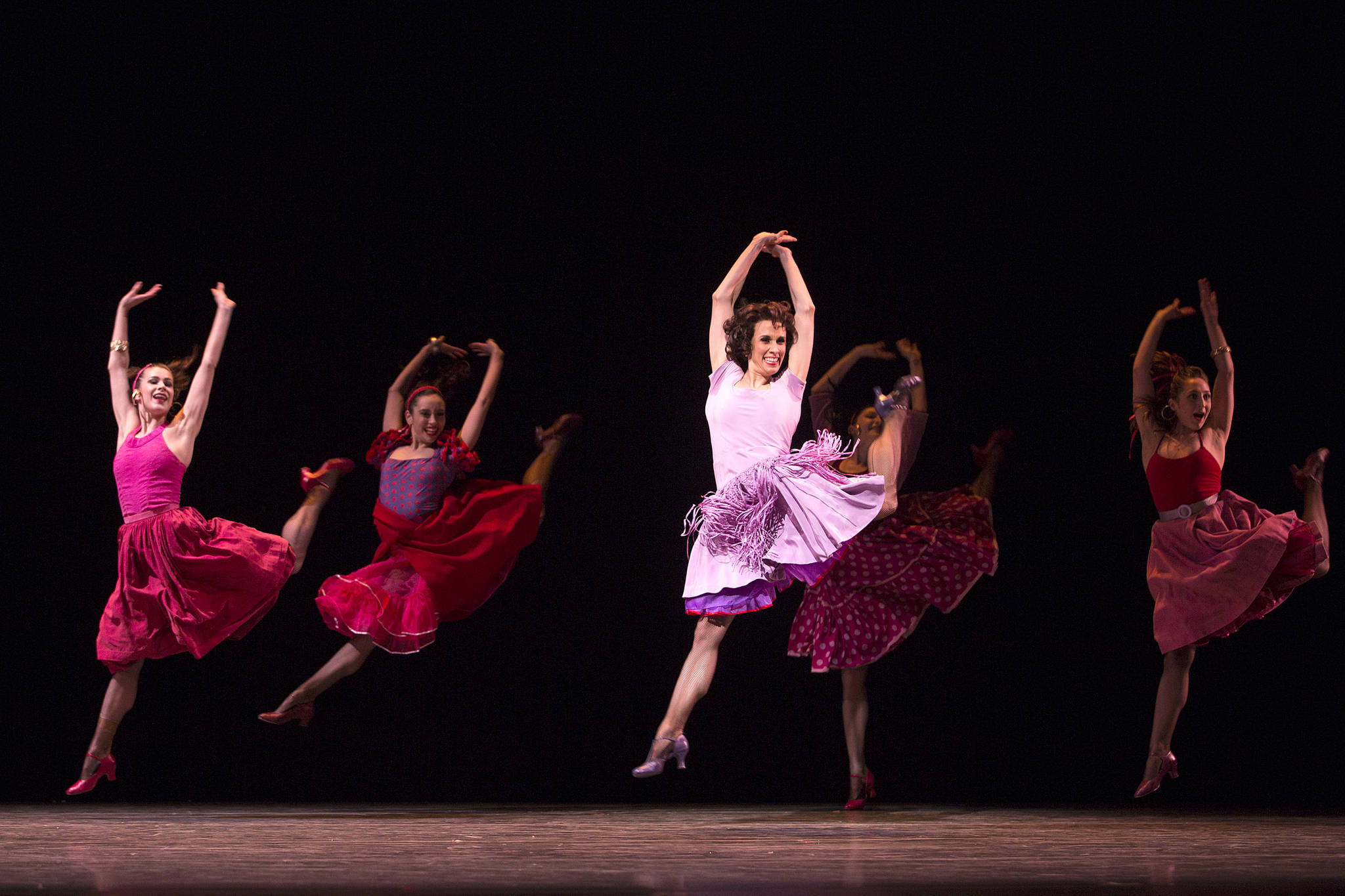Despite the stereotypes, musical theater isn’t only one long love song—Carousel is about spousal abuse, the hero of Company is a serial philanderer, and there’s plenty of violence and death in Les Miserables. But the world of Marcus Ward, a recently released convict trying to return to a life that he had trouble enough coping with 20 years previously, is full of difficulty, and The Exile Project, the new work by Holly Eckert about that harsh process, is laced with grief and sadness.
Ward killed a drug dealer as a young man and was sentenced to prison, leaving his mother, his lover, and his life behind in the old neighborhood. When he’s released, and shows up at home unexpectedly, it’s to a faster, brighter, and louder place than he’s accustomed to. A boxer as a youth, he still has that twitchiness, and the instinct to hit first and ask questions later. He’s angry—at his circumstances and at himself—unsure of his place in the world, and unprepared to make the changes he must in order to go forward.
Eckert found the idea for Exile, a cri de coeur against our high rates of imprisonment, through her day job as a paralegal working with public defenders. But truth isn’t the same as fiction, and Eckert, along with her writing partner, L.A. Heberlein, has burdened the characters in Exile with tribulations that are almost biblical. Marcus can barely find his way home in a city that has grown past his memories, can’t control his temper, can’t reconnect with his old lover, can’t find a job. He can’t even sleep in his old bed, since his mother has taken in his cousin, Tony. And Tony is an out-of-work dancer, injured in a car accident, who’s halfway to being addicted to his pain medication. By the time we see Maya, Marcus’ former lover, lose her job (fired via cell phone) in the second act, we’re punchy with all the turmoil.
The fact that these events could all be facts doesn’t necessarily make Exile a cohesive theater piece. As compelling as any one moment is, taken together there’s too much—too much shouting, too much angst, too much agitated walking around.
The signature accordion of Amy Denio, who wrote the score for Exile, moans underneath some of the most compelling scenes. The opening sequence, as Marcus paces the edges of his cell, counting off the steps and the time he has left to serve, is succinct and pungent. A duet by Marcus and Tony, scat singing as they try to smooth over the history between them, is a welcome lighthearted moment. And although it goes on longer than it might need to, when Marcus’ insecurities play themselves out in a nightmare boxing match, Eckert and her crew do what good theater does—show us the world rather than telling us about it. Eckert is by training a choreographer, and Exile works best when she goes with the physical impulse of a scene. The straight dance scenes interspersed through the work underline the emotional life of the characters without extra detail—they distill the moment.
The cast seems infused with the same intense sincerity that motivates Eckert, especially Gary Reed in the part of Marcus. Slight and folded in on himself here, Reed looks like a man who is trying to ease back into an old picture, until his temper flares and he breaks out of the frame.
Exile has been in serious development for more than a year, but Eckert has been mulling over these characters and their world for much longer. Currently, the project is in that funny middle place—not a finished work, but certainly worth further effort.








